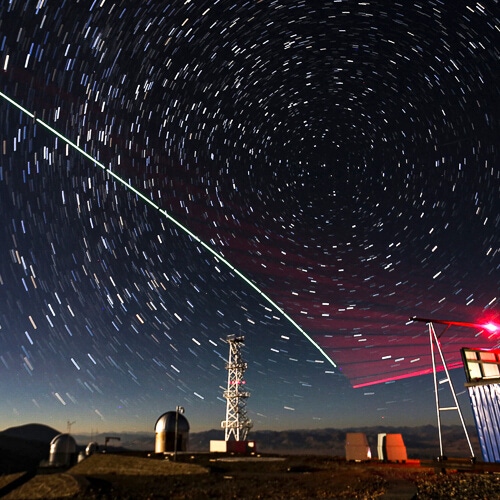After 5G, AI and space exploration, China has elbowed its way to the front of the pack in another key technology – quantum communications.

After 5G, AI and space exploration, China has elbowed its way to the front of the pack in another key technology – quantum communications. It achieved a major breakthrough early this year with the world's first satellite-to-earth quantum communication network.
A University of Science and Technology of China (USTC) team carried out multi-user quantum key distribution, creating an uncrackable connection across 4,600 kilometers.
Figure 1:  Quantum leap: Satellite-to-earth link established between quantum satellite Micius and the quantum teleportation experiment platform in Ali, southwest China's Tibet Autonomous Region.
Quantum leap: Satellite-to-earth link established between quantum satellite Micius and the quantum teleportation experiment platform in Ali, southwest China's Tibet Autonomous Region.
(Source: Xinhua/Alamy)
The test integrated China'sMicius quantum satellite with China Telecom's terrestrial fiber network to create the world's first quantum wide area network.
The quantum research projects have backing from the highest level. Quantum is a priority target of the latest five-year plan and was a study topic for the politburo, the communist party's highest body, in October 2020.
Quantum theory
China Telecom, the designated quantum telco partner, has some big ambitions of its own. In September 2021, it announced a joint ventureQuantum CTek, a USTC spinoff, to carry out R&D into quantum technology and develop it commercially. The partners said they aimed to integrate quantum communications with other technologies such as 5G, big data and cloud.
In January China Telecom announced a secure quantum phone service using a dedicated SIM and 5G app, available for users in Anhui province.
Now the operator says it will also sell a quantum-based IoT security product and a secure quantum cloud product. Like the encrypted phone service, details are scarce and appear to be pilot schemes only.
Cryptic messages
The USTC team won scientific recognition following the launch of Micius, the world's first quantum satellite, in 2016. Scientific American said team leader USTC professor Pan Jiawei and his colleagues achieved "several groundbreaking results that are bringing the once esoteric field of quantum cryptography into the mainstream."
According to Pan, the breakthrough was in deciding not to deploy the satellite for communications relay, but using it instead for simultaneous transmission of quantum keys to ground stations – a technique known as entanglement-based quantum-key distribution – ensuring the creation of the secure link.
Want to know more about satellite? Check out our dedicated satellite content channel here on
Light Reading.
Next, USTC researchers say they plan to build out a low-orbit quantum satellite fleet that can perform quantum key distribution globally. The first satellite will likely be launched next year. China Telecom is also building a quantum metropolitan area network in Hefei city, where USTC is located, to provide secure communications for government departments.
"China's systemic breakthroughs in the field of quantum technology have enabled the country to make a historic leap from being a follower to becoming one of the leaders," said Pan.
Related posts:
— Robert Clark, contributing editor, special to Light Reading
Read more about:
AsiaAbout the Author(s)
You May Also Like











